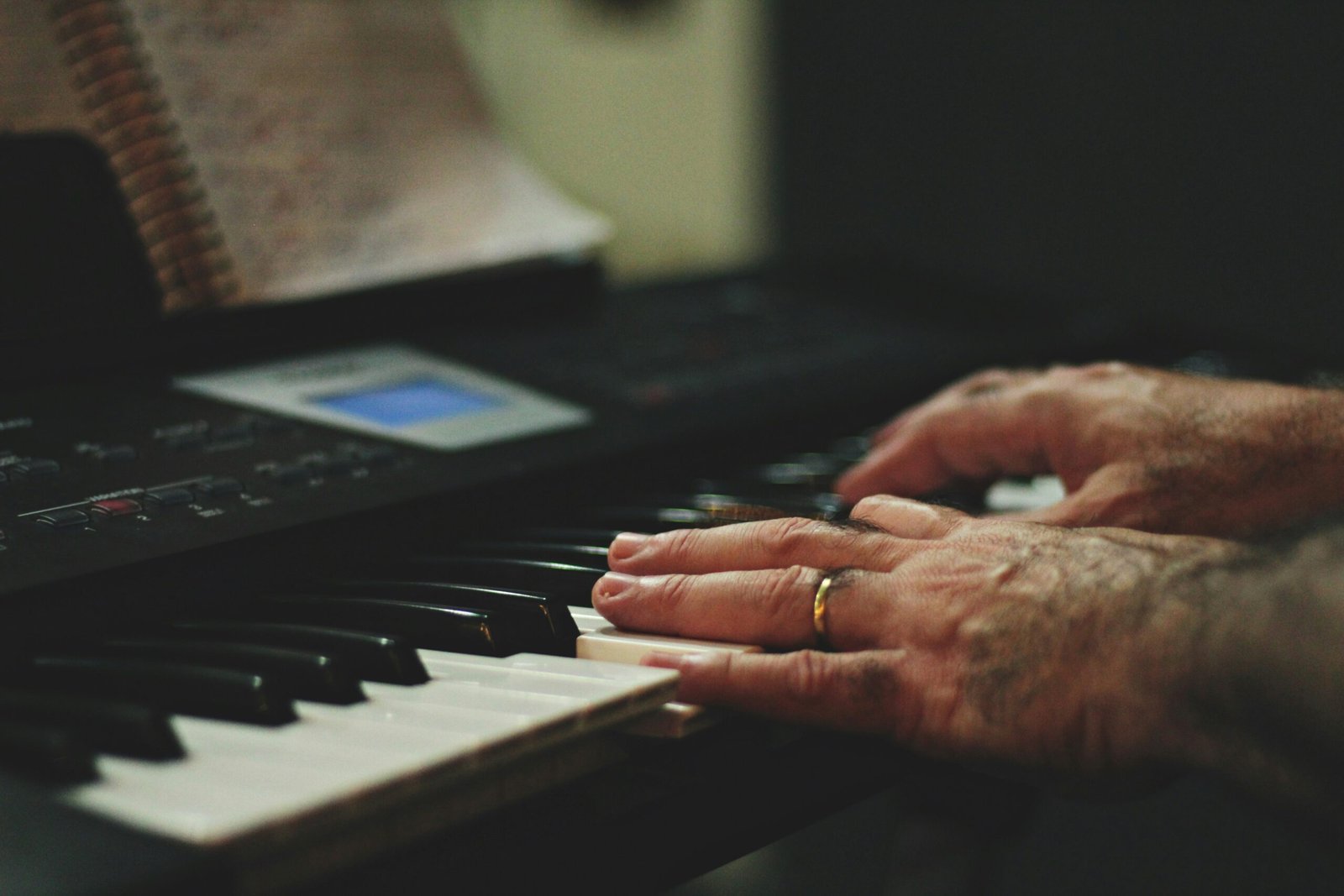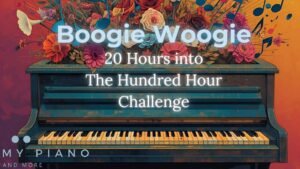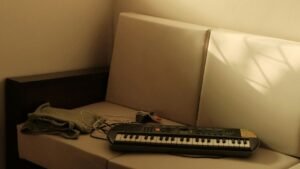Dealing with Age-Related Self-Doubt
Too Old to Learn the Piano?
Recently, a subscriber to my blog wrote asking for advice on using apps to learn to play the piano. Among other things, they mentioned that they might be too old to use them. When I read this, I was a little saddened, as I am a strong believer that we are never too old to try anything.
Yes, as we age, we may become less reactive, more fragile, and our memory or eyesight might not be what it used to be.
But why should we stop striving for things as we get older? Why should we give up? Learning something new, after all, is a tonic in itself—a reminder that we can still enjoy achieving those little steps toward a goal.
So, why would you think you are too old to learn the piano? In this post, I want to give some reasons why—whatever method you use to learn—you are never too old to learn the piano.
Cognitive Benefits
As we get older, many of us worry about the loss of our cognitive faculties. This is perfectly natural; we have all seen examples of friends, family, and acquaintances ‘losing their marbles’—so to speak.
It’s not something to make light of; indeed, my own father suffered from Alzheimer’s in his final years, and it was a painful time for the whole family. But one thing I noticed: no matter how bad it got, he still loved hearing music, and his foot always tapped. There was something in it—something in music that the horrible disease could not touch.
Enhanced memory and retention:
Playing piano enhances both working memory and long-term memory function. It has also been found to improve verbal memory and processing speed.
Improved language skills:
As I mention in another post, music is a language, and by learning and reading it, improvements have been found in hand-eye coordination as well as in stimulating the area of the brain involved in language processing.
Sharpening of attention and focus:
The act of playing—especially to sheet music—requires and exercises our ability to read, coordinate our hands, and listen simultaneously. This is very healthy for the brain and improves our ability to focus on complex tasks.
So the next time you think you are too old to learn the piano, think about the ability to recognize different visual and auditory events can benefit us in other areas of life, such as driving or focusing on a specific conversation in a noisy environment.
Enhanced spatial-temporal skills:
Piano practice activates brain regions used in spatial reasoning and mathematics. This can lead to improved abilities in math, science, and engineering tasks.
Health Benefits
Believe it or not, there are also physical health benefits to playing the piano on a regular basis. Granted, you may not lose weight or get toned abs doing it, but here is a list of things that you do get.
Improved hand dexterity and coordination:
The act of playing the piano helps enhance fine motor skills, finger strength, and hand-eye coordination. Think about how this can help later in life with simple things like dressing, cooking, or writing. The regular movement has also been shown to counteract the effects of arthritis in some early cases.
Better blood circulation:
The act of controlling your upper body and keeping your arms and hands moving has been shown to improve blood circulation, which in turn can slow or counter the effects of poor circulation—also helping to keep warm in those cold winter months.
Stress reduction and emotional well-being:
As you probably have seen in my other posts on this blog, I am a big believer in reducing stress and trying to get a more balanced outlook. Playing the piano has helped me calm down and find a needed ‘happy place,’ especially when I finally get that tune I have been wanting to play for so long to a point where I am happy with it. We can all suffer from stress or anxiety at some point in our lives. Playing and listening to music really helps.
Social Aspects
How can playing the piano improve your social life? It’s a solitary affair, right? Wrong—and here is why.
Joining Social Groups or Social Media Communities Focused on Your Hobby
There are literally hundreds of thousands of people out there doing the same things as you for the same reasons. By this very fact, there is always somewhere to go to share your thoughts, questions, aspirations, and achievements.
You just have to reach out. Check your local areas for social groups or local courses where you can meet like-minded individuals. Join Adult Piano Beginners on Facebook or something similar. There are tons of resources—find one that’s good for you and join.
Getting a Teacher
Finding someone who is focused on your journey and your aspirations, who regularly pushes you to improve and can act as an inspiration to try something different. Why not? If you can afford the time and cost involved, who knows where it might take you. They may even encourage you to perform in front of a larger audience who share your passion.
Going Public with Your Skills
Come on, admit it, we have all seen that piano in a hotel, or a shop, or a bar with a note on it saying “Play me if you can” or some such tempting invitation. Personally, I have not built up the confidence to do it yet, but I will one day. But imagine doing it, playing something you just know inside out, and if one person stops and listens—you have made their day better. Imagine that.
Time Investment
Learning piano takes time; there is no instant success, no quick path. Once we are comfortable with this, we can really make progress. It is not a race or even a marathon; it’s a lifelong journey. Whether you start at 5 years old or 95 years old, you will always be better tomorrow than you were yesterday—that is just how it works.
Your brain will absorb the new language, and things that seemed out of your reach a year ago will come more naturally to you. It’s a voyage of self-improvement, and as with all voyages, the longer they are, the more change you will see at destinations along the way. Take the time, make the time, and give yourself time.
Tools
This post, “Too Old to Learn the Piano,” was inspired by a question I got from one of my readers. But their question was actually related to tools. In it, they mentioned that they had tried an app but it was expensive and not what they were looking for. So here is my rundown on apps vs books—the pros and cons.
Simply Piano
Pros
-
- Very gamified, colourful, and beginner-friendly
-
- Large song library
-
- Realtime feedback
Cons
-
- Expensive monthly cost
-
- Free version very restricted
-
- Feedback can be interrupting and frustrating
Skoove
Pros
-
- Interactive
-
- Works with any piano
-
- Great support
Cons
-
- Expensive
-
- Note recognition issues
Piano Marvel
Pros
-
- Very comprehensive
-
- Ear training included
-
- Good progress tracking
Cons
-
- Too professional for young learners
-
- Costly subscription fee
Flowkey
Pros
-
- Large song library with levelled versions
-
- Video tutorials
-
- Wait mode with varying speeds
-
- Just play mode
Cons
-
- Subscription fee
-
- Less focus on technique
Of all of these, the one I have stuck with is Flowkey, because of its strong library and varying levels. However, it still costs, and to really get value for money, I personally think you need to be able to learn a song a week on it. As I average 40 hours per song until I can play it confidently, for me it’s a low value for money.
Books
Pros
-
- You can find a book that covers your niche and level.
-
- They tend to be more focused on technique with better attention to music theory.
-
- You can go at your own pace.
-
- Often they have note areas where you can track your progress, issues, etc.
-
- They REALLY improve your sight-reading skills.
-
- If you don’t know a song, there is always someone on YouTube who has played it from this book—you can just listen to it to get an idea.
Cons
-
- They don’t give feedback.
-
- They have fewer songs and some may not be to your taste.
But overall, in my humble opinion, books still win in the battle of the learning tools.
Conclusion
So, are you too old to learn the piano? The answer is an emphatic no. The advantages it gives you far outweigh the disadvantages. So I would encourage anyone, young or old, to check out what piano would be good for you, why you want to play, and go for it.
After all, you have nothing to lose and still lots of time to learn. Set yourself goals, work towards them, and have fun.
Thanks for reading and happy learning.
Jon
Get in touch
I would love to hear your thoughts, do you feel too old to learn ? Join the community, we are here to support each other on this journey. Even if you just want to be heard, drop me a line. You can join the Facebook group and even see my first efforts on YouTube.




